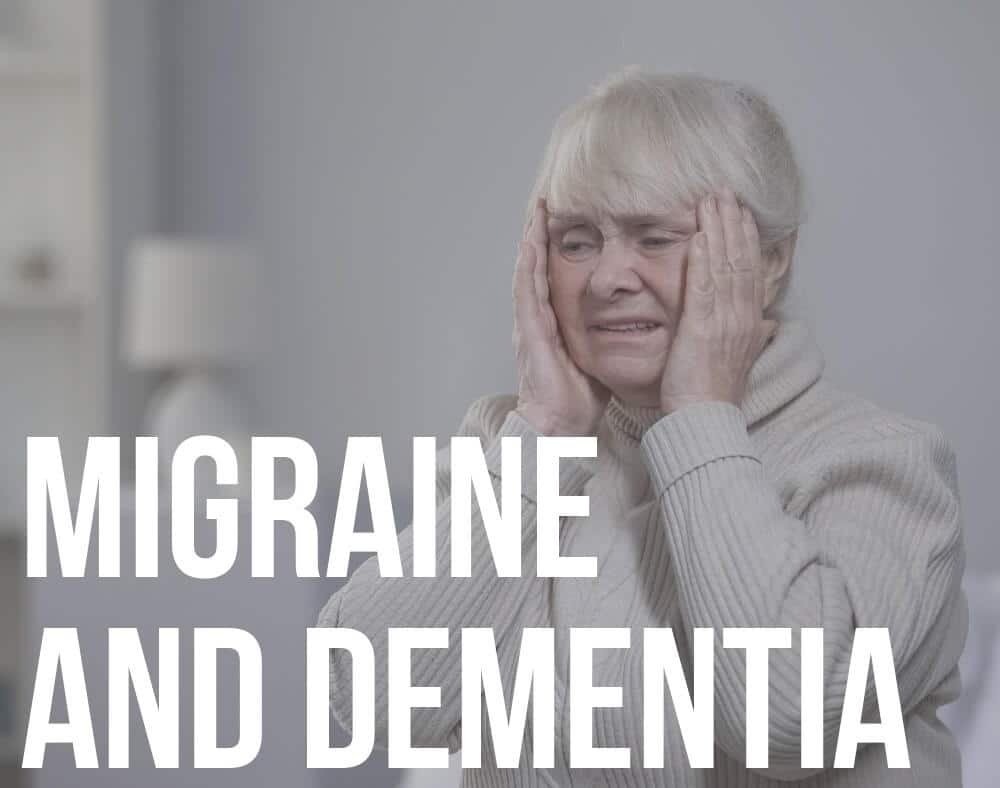Research looking into the link between migraine and dementia reveals that migraines are among the top dementia risk-factors.
Migraines are a neurological disease that involves repetitive and severe headaches as well as other symptoms.
In some cases, there may be an aura which is a sensory change before the headache occurs. Migraines are not your typical headaches.
They can last for days and can affect an individual’s daily life including their ability to study or work.
The Migraine Research Foundation reports that the disease affects one billion people across the globe.
That makes it the 3rd most widespread disease in the world.
Are Migraines and Dementia Closely Related?
Dementia on the other hand is not a specific disease but a group of conditions that are characterized by impairment of brain functions like judgment and memory loss.
One of the reasons why researchers were interested in studying dementia and migraines is because both are common neurological diseases.
While dementia mostly affects seniors, migraines usually affect people of all ages.
One of the studies that support the idea that there is an association between migraine and dementia was published in the International Journal of Geriatric Psychiatry.
It explains that researchers talked to 679 seniors asking them about their migraine history. More than half of this group were women and none had a history of cognitive problems.
Are migraine sufferers more likely to develop one form of dementia?

The average age of the subjects was 76. The experts pursued elderly individuals for 5 years and discovered that 51 of them had a positive dementia diagnosis.
Considering factors such as age and education, the researchers found that individuals with Alzheimer’s disease (AD) were over four times more likely to have had migraine attacks.
AD is one of the most common forms of dementia.
Suzanne L. Tyas a senior author of the study said that persons with migraines history were three times more likely to develop a kind of dementia and four times more as likely to develop Alzheimer’s.
The study, however, did not find a link between migraines and vascular dementia.
What affects migraines?

According to Rebecca Edelmaye, director of scientific engagement at the Alzheimer’s Association, the link between migraine and dementia is advanced by the fact that migraines affect the lifestyle decisions of a person.
This includes not eating a healthy diet, poor sleep, reduced social/cognitive stimulation, and not being active.
These factors have very much in common with those known to increase the risk of dementia.
Previous research had found connections between dementia risk and migraines. Scientists have, however, not yet pinpointed the exact link between the two diseases.
Many suspect that it has a lot to do with vascular risk factors like diabetes and hypertension. On record, these are potential dementia risk factors.
Research also reveals that long-term migraines can alter the structure of the brain resulting in some destructive effects.
A study published in Neurology in 2013 examined the contribution of migraines to structural changes in the brain including volumetric changes in white and gray matter, white matter abnormalities, and infract-like lesions.
Experts in this study were looking for solid evidence and a better understanding of the relationship between migraine and dementia.
Implications of the Studies

There are a couple of things that come up after the discovery that there is a link between migraine and dementia.
One of them is the fact that the research can help medics predict better the people who are at risk of this neurodegenerative disease.
This might also lead to early detection of the disease. This is an essential part of treatment according to the professionals.
Early detection is helpful because it means that affected individuals can start treatment as soon as possible. It can, in turn, enhance the effectiveness of the treatment therapies.
This can also empower persons with the illness and their loved ones to make the proper decisions at the right time.
There is also a chance that future research will better explain how migraines affect Alzheimer’s and other forms of dementia as well as how to ease the risk.

